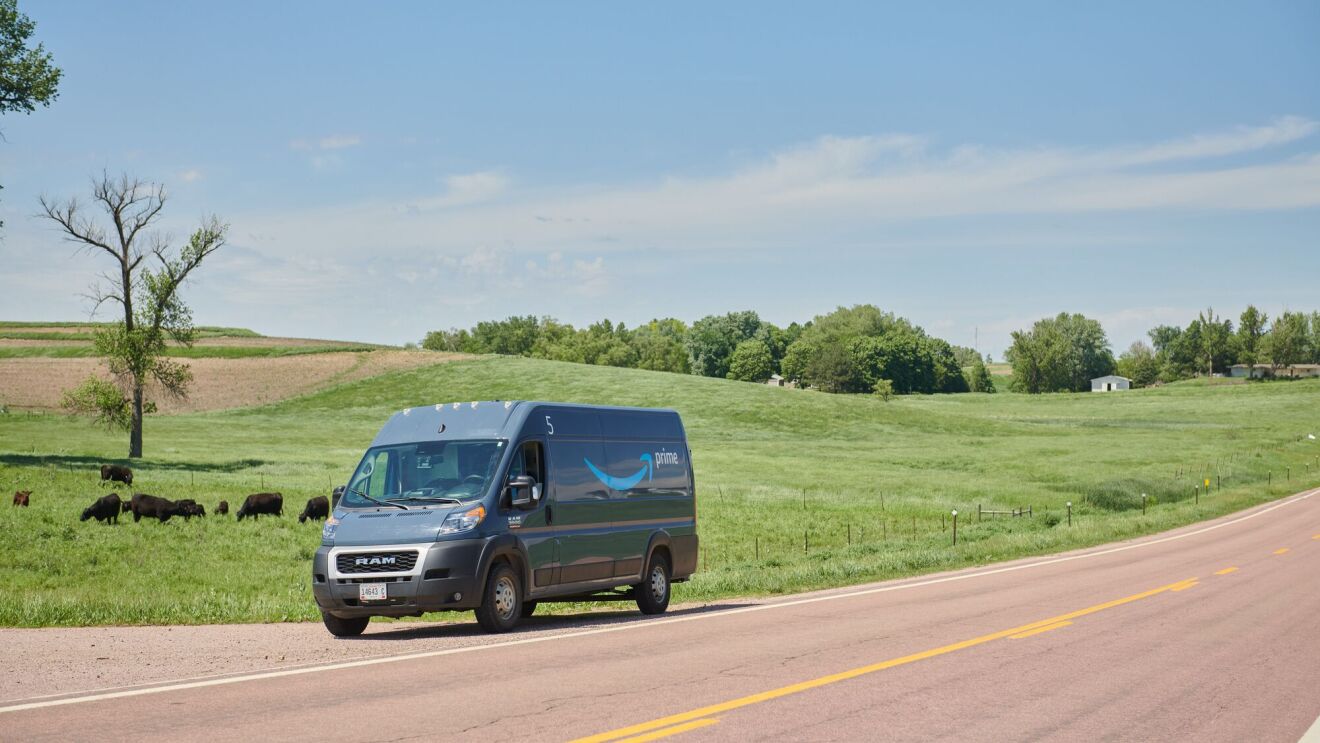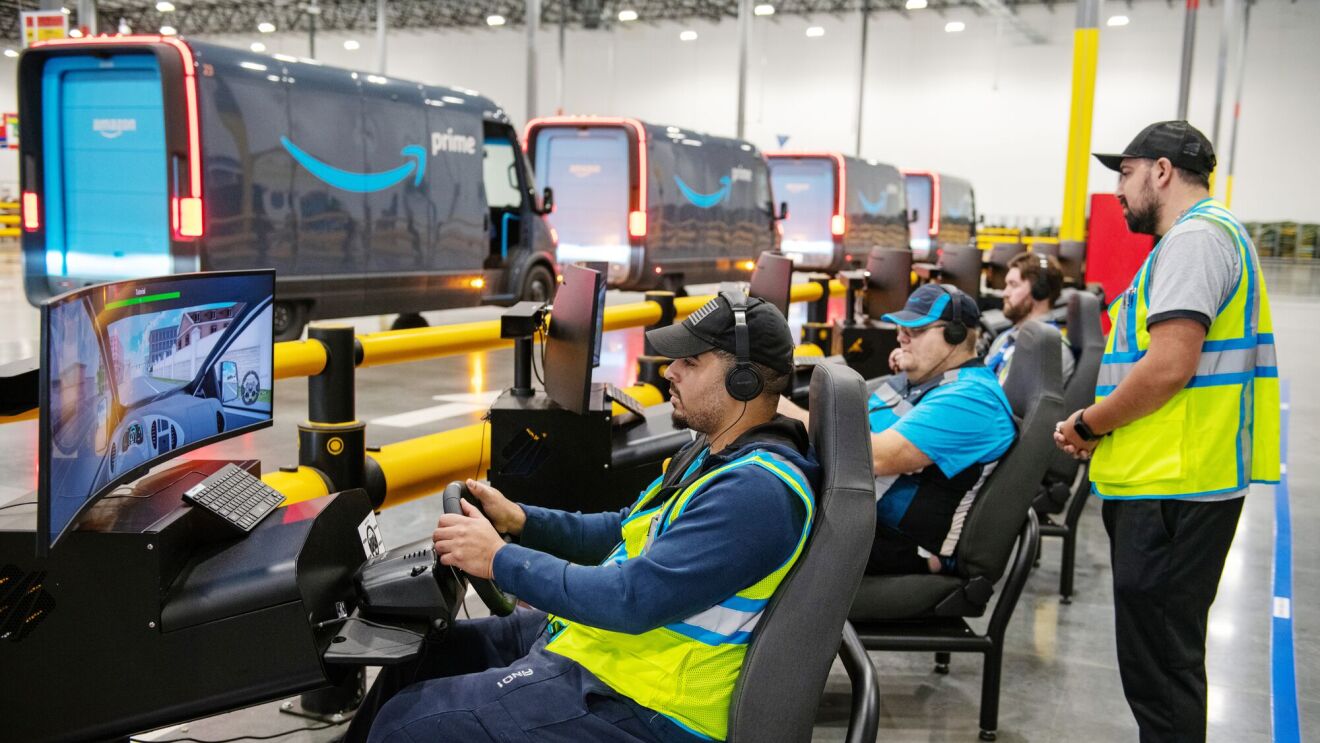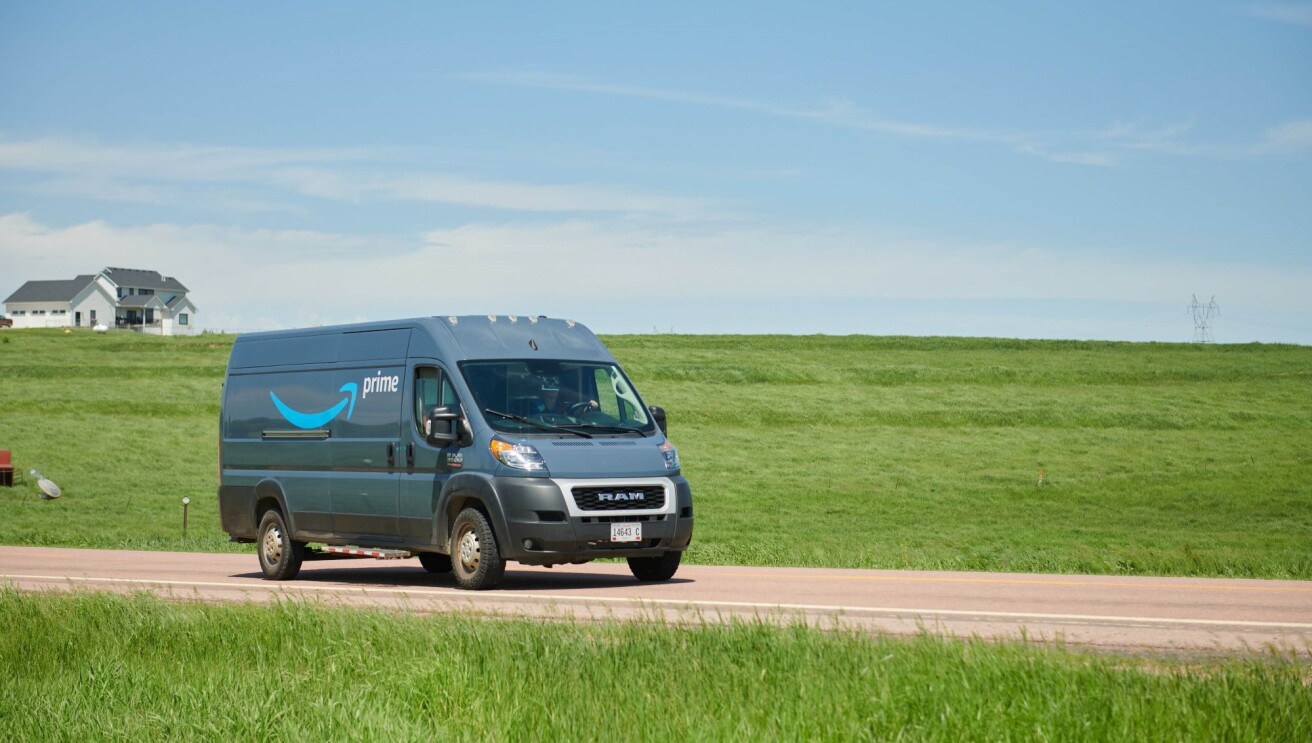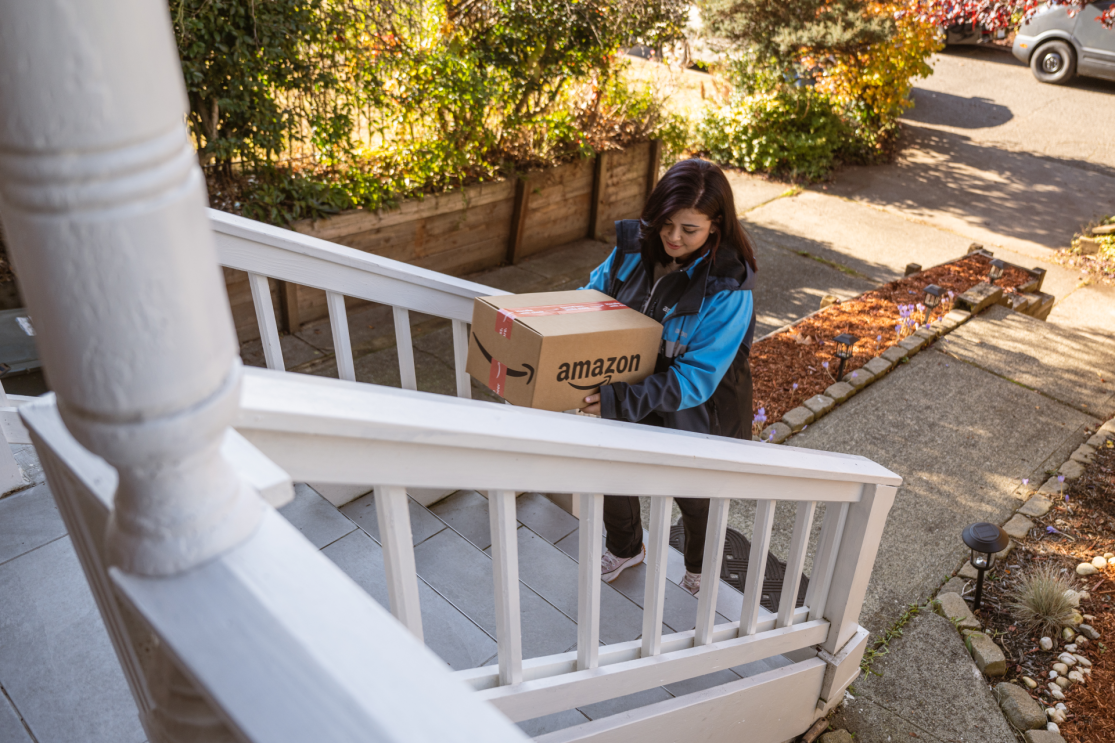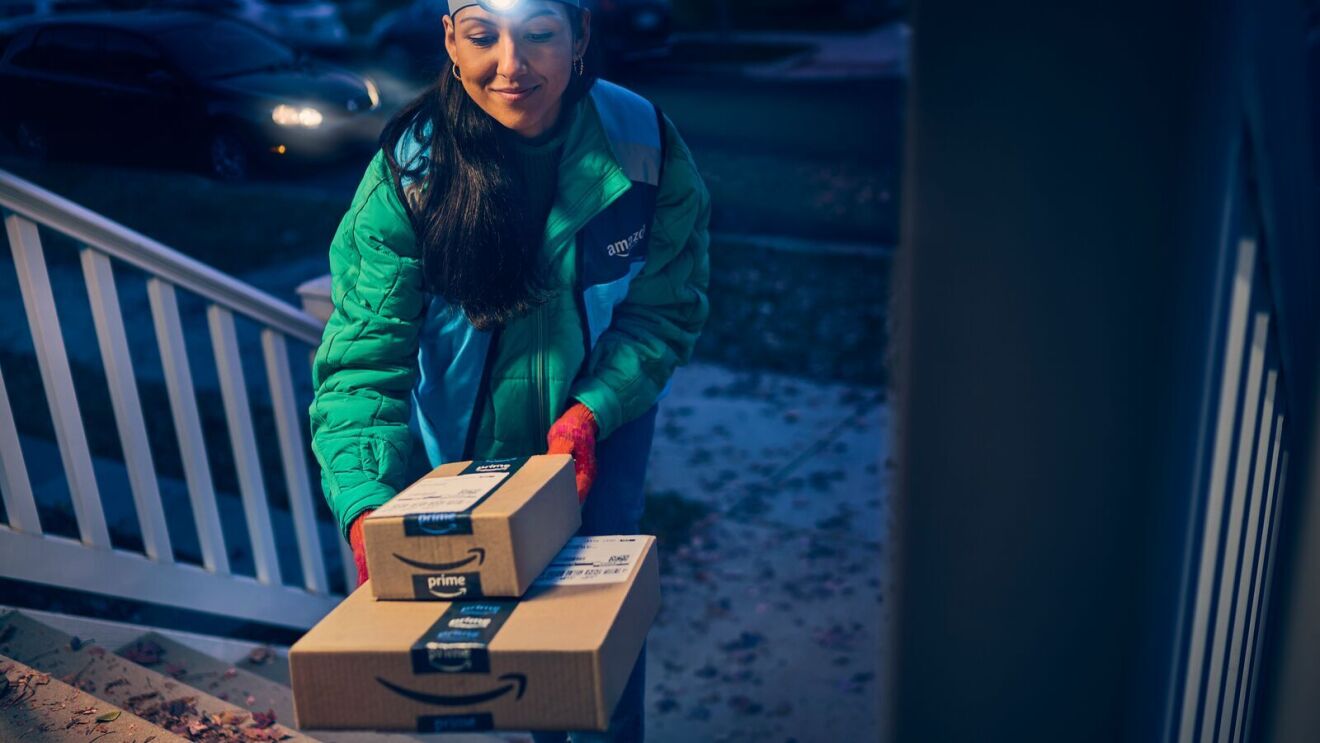Key takeaways
- Amazon drones can deliver over 60,000 items, including newly approved products like iPhones.
- Customers can input their delivery drop-off location in the Amazon app.
- Delivery times are accurate within five minutes.
It’s never been easier to receive a drone delivery from Amazon if you live in one of the locations where we currently offer it.
From tapping the “place your order” button to seeing the item delivered, the entire process takes 60 minutes or less. So, if you realize you need more sunscreen or forgot you needed more batteries, but don’t have time to make a trip to the store, Amazon has you covered.
It all starts at Amazon.com or in the Amazon Shopping app. Customers can choose more than 60,000 items for drone delivery as our selection continues to grow. Recently, we received FAA approval to deliver several new categories of items, including devices like Apple iPhones, Samsung Galaxy cellphones, Apple AirTags, Apple AirPods, Ring doorbells, and Alpha Grillers Instant Read Food Thermometers.
All you need to do is select the drone delivery option when you check out if you’re in an eligible area and the item in your cart is 5 pounds or less.
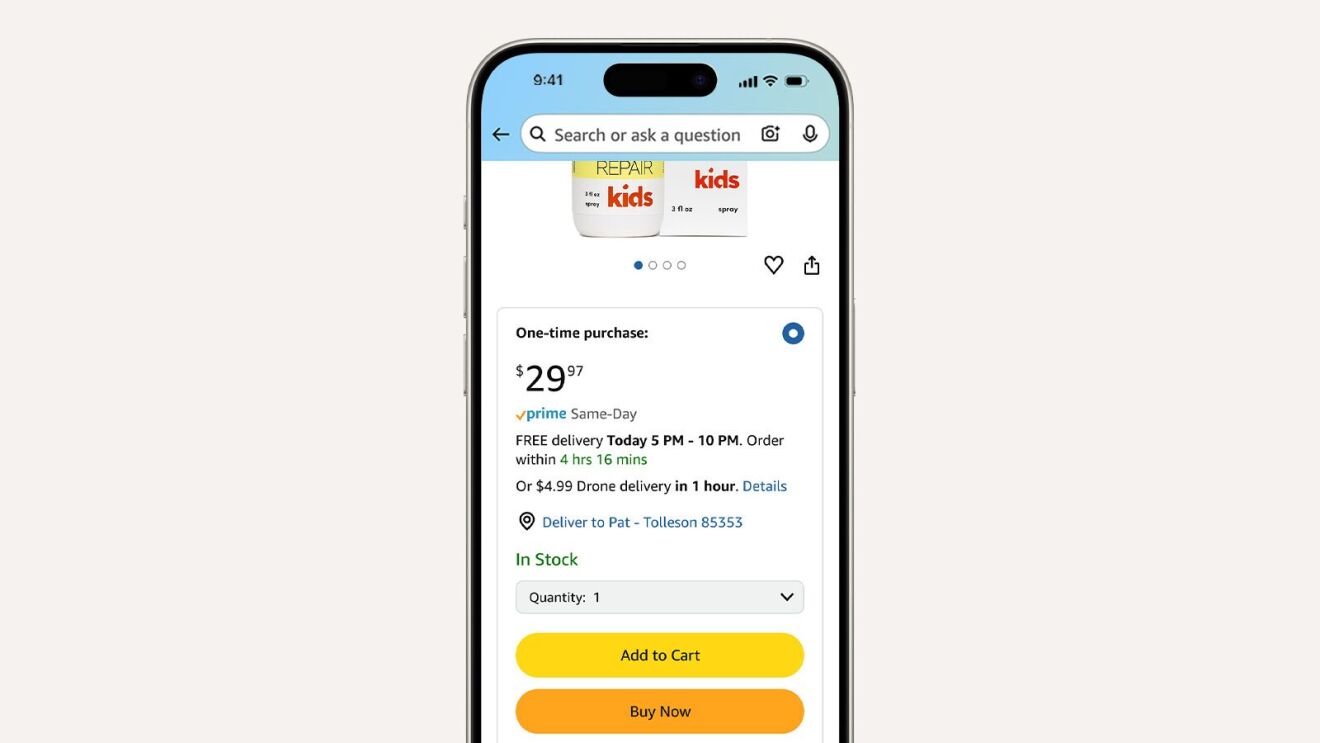
From there, select and confirm your preferred delivery spot at your address, such as in a driveway or yard. You won’t have to confirm your delivery point on your next order, and you can always update the delivery location or report an issue.
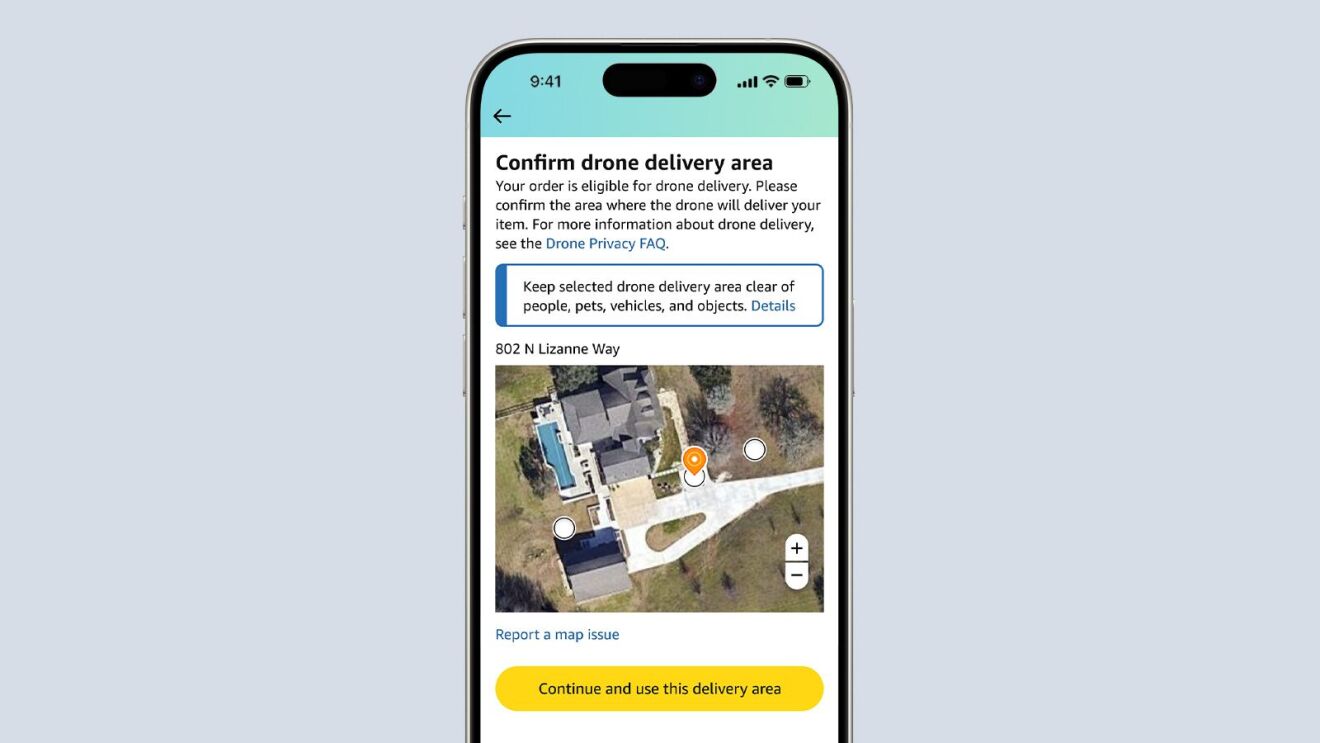
A simplified experience
Our latest ordering process is the result of two years of building and incorporating the technology that allows seamless onboarding based on digital maps, and removing the need of physical survey of the delivery area.
Now, we can accurately determine how long it will take to fly to an address and drop off the package. So, after the order is placed, Amazon determines a near-exact delivery time (within five minutes) of when to expect it. Amazon will also notify you if your delivery cannot be completed.
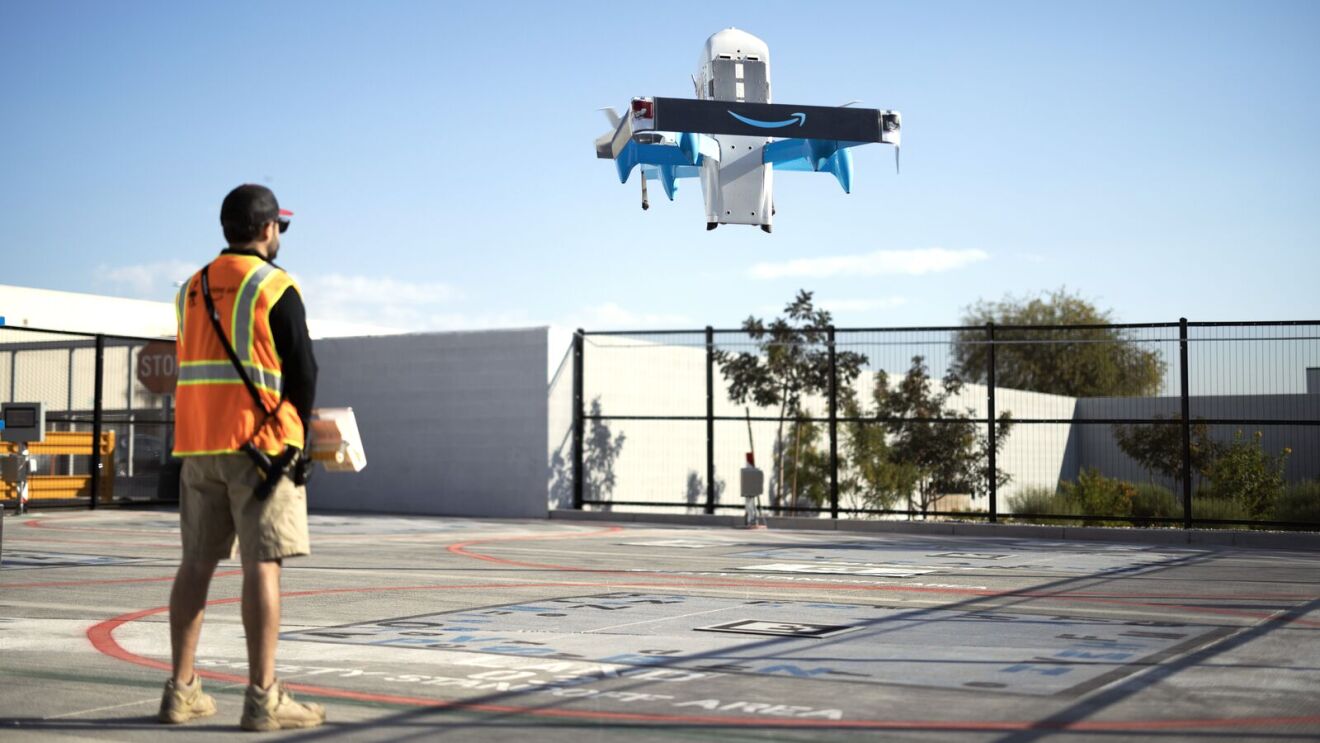
While building the drone delivery map, Prime Air first identified “delivery zones,” or areas free of obstacles like buildings or trees. Based on these zones, “delivery points” were added to each eligible address that were clear of obstacles, reachable by a drone, and ensure good customer experience. For example, a swimming pool looks like a flat surface on satellite images, but isn’t a suitable delivery point.
The introduction of the new MK30 drone, streamlines the delivery process. Previously, Prime Air would deliver to a QR code placed in a customer’s designated delivery area. Now, the process is automated so that orders arrive directly at designated delivery points without the need for a physical QR code.
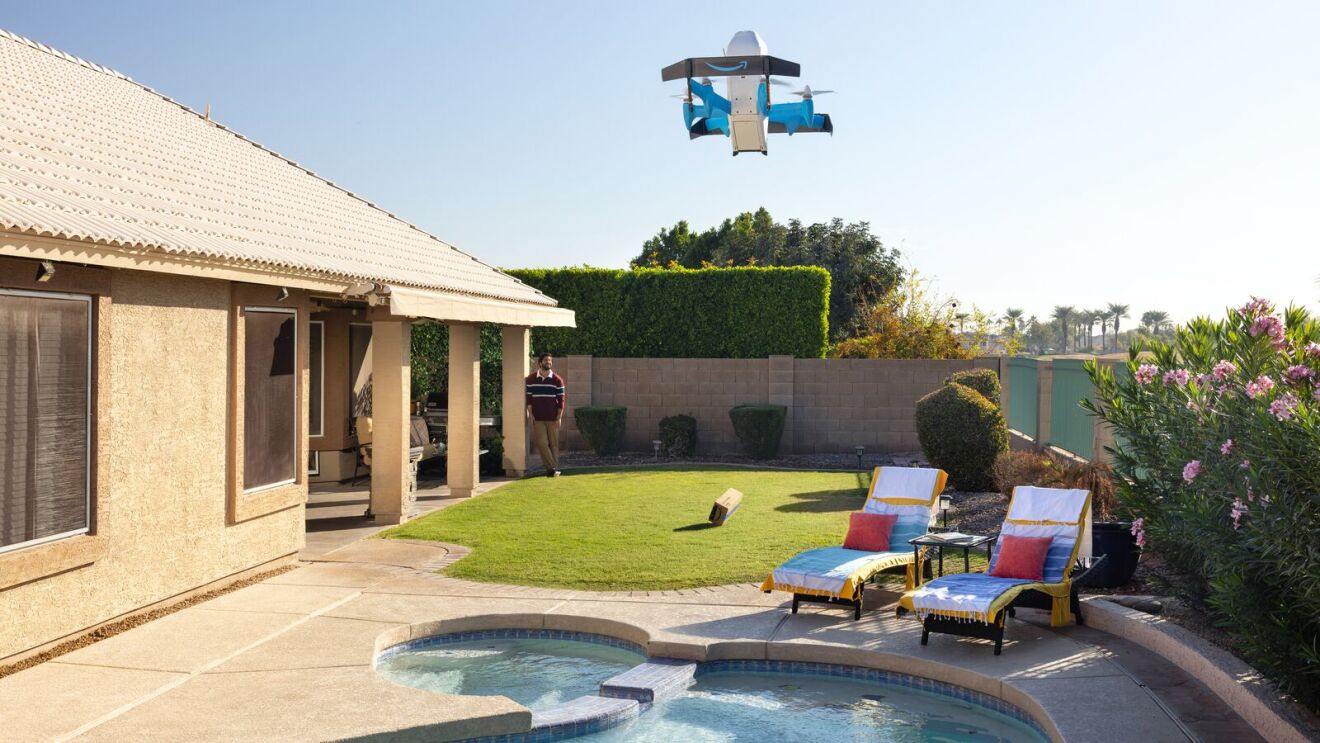
When it reaches the delivery point, the drone verifies it’s in the right location with the right package before making the delivery.
Fast and convenient deliveries
Once a drone arrives at a delivery point, it descends to approximately 13 feet above the ground—low enough to deliver an item safety and securely. The drone also ensures the delivery area is clear of pets, cars, or people before it delivers the package.
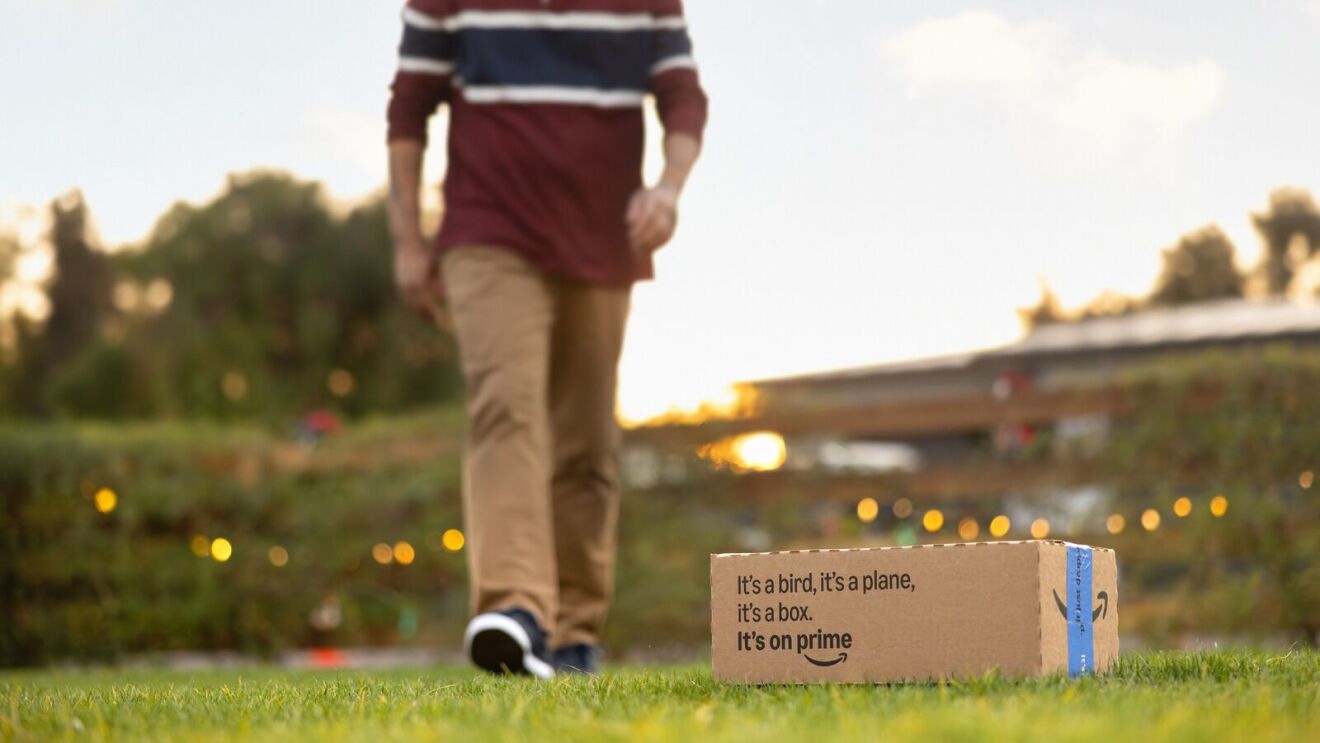
The cutting-edge perception system can detect and navigate around obstacles that may not be on satellite imagery or that may enter the drone’s vicinity.
Not every day can be clear and sunny, either. While the MK30 can fly well in light rain, Prime Air won’t accept deliveries in all weather conditions. The team uses a 75-minute forward-looking weather service to determine if a drone delivery should be available in the next hour. If the conditions are not right, the service won’t be available in the app – customers can still have the item delivered through a standard delivery.
Drone deliveries are an extension of Amazon’s steadfast commitment to a fast and convenient shopping experience for customers.
Now that we've made the process more streamlined and seamless, we are excited to continue to scale the service to reach more customers in the months and years ahead.
Trending news and stories
- 4 things that make Prime Day 2025 different
- Meet Project Rainier, Amazon’s one-of-a-kind machine ushering in the next generation of AI
- From packing boxes to building satellites: Amazon's Career Choice helps employees take stellar career leaps
- Project Kuiper and U.S. National Science Foundation sign satellite coordination agreement



